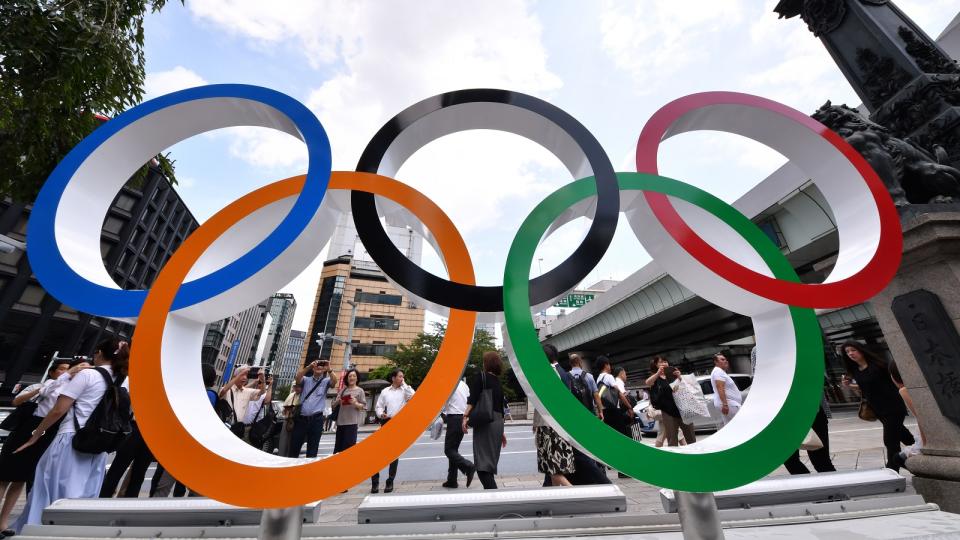Coronavirus Threatens to Wipe Out Millions in Olympic Spending

Click here to read the full article.
Tokyo’s 2020 Olympics is months away from starting, and yet one of the event’s most critical races has already begun: Can the people who organize this unique global gathering outrun the growing effects of the illness known as the coronavirus?
There is a large group that believes it may not. Japan, which will host the Games, has closed its schools for a month. And the U.S. Center for Disease Control and Prevention in Atlanta has warned older and at-risk Americans to avoid visiting the country. Recent cancellations of big events like the annual Mobile World Congress in Barcelona and Facebook’s F8 developer conference in the U.S. suggest corporations are growing wary of travel. The operators of Tokyo Disney Resort said Thursday they would close the facility for two weeks, and hoped to re-open in mid-March.
More from Variety
CBS Suspends 'The Amazing Race' Production Over Coronavirus Fears (EXCLUSIVE)
Fox Business Skips Commercial Breaks to Cover Coronavirus (But Still Has a Sponsor)
Yet the Olympic Games generate billions in dollars for a host of concerns. NBCUniversal in December announced it had already sold more than $1 billion in advertising commitments in its planned U.S. broadcasts in the Tokyo Olympics, and was on track to surpass $1.2 billion. The company’s parent, Comcast, agreed to pay $4.38 billion for the United States media rights to four Olympics from 2014 to 2020, and $7.75 billion for broadcast rights to the Olympic Games between 2021 and 2032. NBCU came away from its last Summer Olympics, the 2016 Games in Rio, with approximately $250 million in profit.
“The safety of our employees is always our top priority, but there is no impact on our preparations at this time,” NBC Sports said in a statement.
Discovery has also been betting on the Olympics. The company in 2015 agreed to pay approximately $1.44 billion for rights to broadcast the four Olympic Games between 2018 and 2024 in Europe. During a call with investors Thursday, Gunnar Wiedenfels, Discovery’s chief financial officer, said the company is “following” the lead of the International Olympic Committee, and suggested a canceled Olympics was “not going to have any adverse impact on our financials.” Discovery has long had insurance in place to safeguard its Olympics investment, executives said.
The absence of a Summer Olympics would pose a unique challenge for many involved. The media business – particularly Comcast – is counting on hundreds of hours of coverage of swimming, archery and trampoline gymnastics to lure millions of viewers to its screens in an era when many of them might prefer to stream a movie, comedy or drama at times of their own choosing. Discovery has been trying to build up a European media business to diversify its operations which are largely dependent on unscripted content showcases like TLC and Food Network. And Madison Avenue was banking on the big event to help it gather together the kind of massive consumer audience that has proven tougher for TV to accumulate when so many other ways of watching video exist.
One media-buying executive familiar with advertisers’ negotiations around the Olympics said marketers have not “formally” lodged large concerns yet, but suggested big agencies were waiting to see if NBC might offer any new guidance regarding ad deals.
Rumors of a looming apocalypse have cast brief shadows on several previous Olympic Games. Brazil’s Zika virus outbreak in 2016 conjured weeks of speculation over whether that country would be able to host that year’s Summer Games. The 2018 Winter Games in Pyeongchang, South Korea, had to tangle with concerns that North Korea might choose to attack while the rest of the world was in the midst of athletic competition. In 2014, Russian authorities were put on alert over a so-called “black widow,” a woman who wanted revenge after her Islamic militant husband had been killed by Russian security forces.
All those Olympics took place, without any of the tragedy speculated upon in the months leading up their opening ceremonies.
Organizers clearly hope that trend continues. “The preparations for the Olympic Games Tokyo 2020 continue as planned. Due to commercial sensitivities, the specific terms of each commercial agreement are confidential,” the IOC said in a statement. “We can say we have long-term, multi Games agreements with our commercial partners, and work closely with them regarding any situation which impacts the operations of the Games.”
Many different parties will be watching to see if those sentiments hold in the weeks ahead.
Best of Variety
Sign up for Variety’s Newsletter. For the latest news, follow us on Facebook, Twitter, and Instagram.

 Yahoo News
Yahoo News 